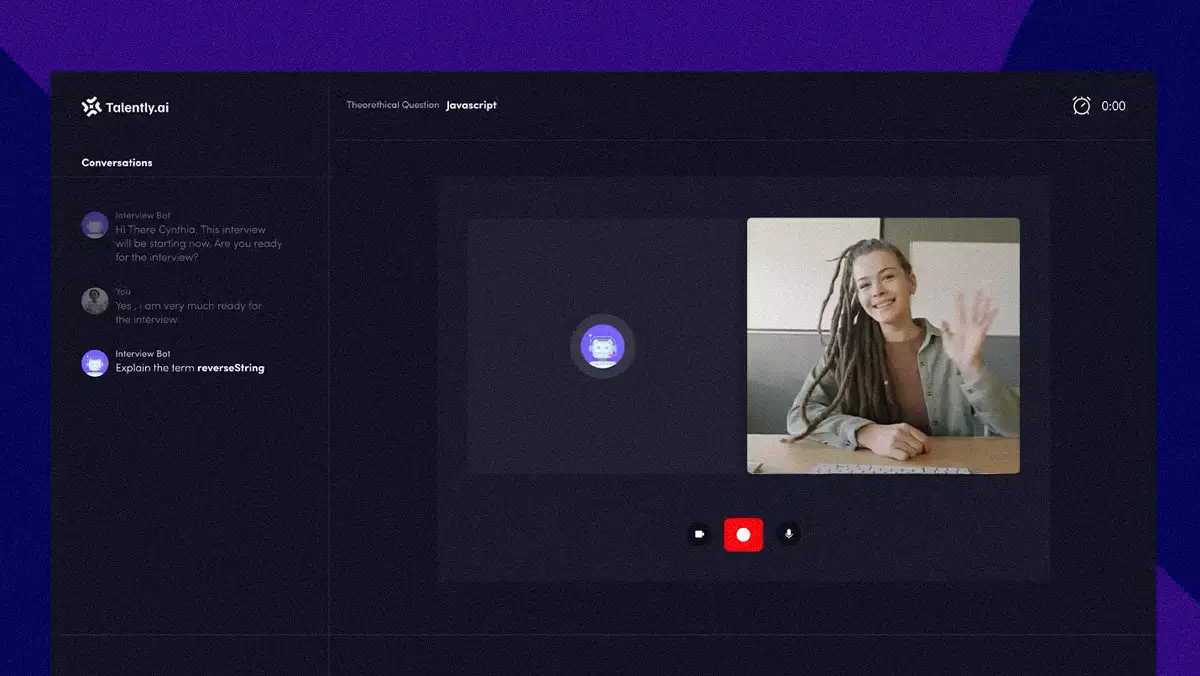AI as a Teammate, Not a Replacement: How Intercom Is Redesigning the Support Role for a New Era

Key Points
Intercom adopts a “customer zero” philosophy by making its own support team the first and most demanding user of its AI tools.
Shaneika Booker, Manager of Customer Support at Intercom, explains how this approach gives her team deep, authentic product knowledge that made their customer conversations more human.
This firsthand experience transforms the team’s role from reactive problem-solvers into proactive consultants who can advise customers on achieving business goals.
The model’s success is validated by an AI-driven CX Score to measure interaction quality and data showing its chatbot can handle up to 86% of support volume.
Our AI really does make the conversation a lot more human with our customers. We're not guessing—we use the product. As customer zero, we're the first to know when something goes down, and that’s why our support is top tier.

Shaneika Booker
Customer Support Manager
Intercom
There’s no shortage of AI hype in customer support, but the companies breaking through are the ones that practice what they preach. By becoming “customer zero” and running on their own AI before selling it, they prove the technology can stand up under real-world pressure. Support teams who live on the product every day gain unmatched credibility, and use it to deliver more authentic, human support.
We spoke with Shaneika Booker, Customer Support Manager at Intercom, to discuss how a company living with their own product can change everything. For Booker, the experience of being the first and most demanding user of Intercom’s AI is the key to building a more authentic, effective, and human-centric support model.
“Our AI really does make the conversation a lot more human with our customers. We’re not guessing—we use the product. As customer zero, we’re the first to know when something goes down, and that’s why our support is top tier.” The philosophy is born from the daily reality of her team. As the first line of defense, they are the initial users to experience the power, and occasional pitfalls, of their own AI. This creates an unparalleled depth of product knowledge that goes far beyond any training manual.
The consultative shift: That intimate, firsthand experience transforms the support team’s role from reactive problem-solvers into proactive, strategic advisors. They aren’t just closing tickets; they are guiding customers on how to achieve their business goals because they have already navigated the same challenges internally. “Our support has gotten a lot more consultative. We’re not just there to fix problems. We are there to consult with you to see how Intercom will work for your business.”
Of course, anecdotes only go so far. Intercom proves the value of its model with hard data, using AI to measure the quality of its human-AI interactions. Intercom’s AI chatbot, Fin, achieves a 51% average resolution rate out of the box and can handle up to 86% of support volume, turning minute-long waits into instant answers. Internally, the team uses an AI-driven CX Score to analyze the entire customer journey.
Coaching with AI: “We’re using AI to score our conversations by looking at the full interaction from start to finish, factoring in everything from efficiency to customer satisfaction. It gives us a clear score and an awesome coaching opportunity. At the end of the day, it helps us continually raise the bar for both our team and our customers.”
The model directly addresses the great existential question looming over the industry: is AI an amplification tool or a job replacement? For Booker, the answer is clear. The goal is not to replace humans, but to elevate them by forming a seamless partnership where AI handles the mundane, freeing up human agents for the complex.
AI as a teammate: “We want AI and humans to work hand in hand. It should be a partnership. It’s not here to take anything away; it’s here to empower you, free up your time, and help you be great.” Rather than replacing agents, AI becomes the partner that amplifies their impact.
And the vision extends beyond simply improving existing roles. By embracing AI so deeply, Booker argued that the technology is not an existential threat, but an engine for opportunity, creating entirely new roles that were previously unimaginable. “AI is creating jobs we never imagined. A chatbot is only as smart as the humans who feed it, and because data is always changing, we now need knowledge managers: people who ensure information is updated quickly and accurately.”
We’re using AI to score our conversations by looking at the full interaction from start to finish, factoring in everything from efficiency to customer satisfaction. It gives us a clear score and an awesome coaching opportunity. At the end of the day, it helps us continually raise the bar for both our team and our customers.

Shaneika Booker
Customer Support Manager
Intercom
We’re using AI to score our conversations by looking at the full interaction from start to finish, factoring in everything from efficiency to customer satisfaction. It gives us a clear score and an awesome coaching opportunity. At the end of the day, it helps us continually raise the bar for both our team and our customers.

Shaneika Booker
Customer Support Manager
Intercom
Related articles
TL;DR
Intercom adopts a “customer zero” philosophy by making its own support team the first and most demanding user of its AI tools.
Shaneika Booker, Manager of Customer Support at Intercom, explains how this approach gives her team deep, authentic product knowledge that made their customer conversations more human.
This firsthand experience transforms the team’s role from reactive problem-solvers into proactive consultants who can advise customers on achieving business goals.
The model’s success is validated by an AI-driven CX Score to measure interaction quality and data showing its chatbot can handle up to 86% of support volume.

Shaneika Booker
Intercom
Customer Support Manager

Customer Support Manager
There’s no shortage of AI hype in customer support, but the companies breaking through are the ones that practice what they preach. By becoming “customer zero” and running on their own AI before selling it, they prove the technology can stand up under real-world pressure. Support teams who live on the product every day gain unmatched credibility, and use it to deliver more authentic, human support.
We spoke with Shaneika Booker, Customer Support Manager at Intercom, to discuss how a company living with their own product can change everything. For Booker, the experience of being the first and most demanding user of Intercom’s AI is the key to building a more authentic, effective, and human-centric support model.
“Our AI really does make the conversation a lot more human with our customers. We’re not guessing—we use the product. As customer zero, we’re the first to know when something goes down, and that’s why our support is top tier.” The philosophy is born from the daily reality of her team. As the first line of defense, they are the initial users to experience the power, and occasional pitfalls, of their own AI. This creates an unparalleled depth of product knowledge that goes far beyond any training manual.
The consultative shift: That intimate, firsthand experience transforms the support team’s role from reactive problem-solvers into proactive, strategic advisors. They aren’t just closing tickets; they are guiding customers on how to achieve their business goals because they have already navigated the same challenges internally. “Our support has gotten a lot more consultative. We’re not just there to fix problems. We are there to consult with you to see how Intercom will work for your business.”

Shaneika Booker
Intercom
Customer Support Manager

Customer Support Manager
Of course, anecdotes only go so far. Intercom proves the value of its model with hard data, using AI to measure the quality of its human-AI interactions. Intercom’s AI chatbot, Fin, achieves a 51% average resolution rate out of the box and can handle up to 86% of support volume, turning minute-long waits into instant answers. Internally, the team uses an AI-driven CX Score to analyze the entire customer journey.
Coaching with AI: “We’re using AI to score our conversations by looking at the full interaction from start to finish, factoring in everything from efficiency to customer satisfaction. It gives us a clear score and an awesome coaching opportunity. At the end of the day, it helps us continually raise the bar for both our team and our customers.”
The model directly addresses the great existential question looming over the industry: is AI an amplification tool or a job replacement? For Booker, the answer is clear. The goal is not to replace humans, but to elevate them by forming a seamless partnership where AI handles the mundane, freeing up human agents for the complex.
AI as a teammate: “We want AI and humans to work hand in hand. It should be a partnership. It’s not here to take anything away; it’s here to empower you, free up your time, and help you be great.” Rather than replacing agents, AI becomes the partner that amplifies their impact.
And the vision extends beyond simply improving existing roles. By embracing AI so deeply, Booker argued that the technology is not an existential threat, but an engine for opportunity, creating entirely new roles that were previously unimaginable. “AI is creating jobs we never imagined. A chatbot is only as smart as the humans who feed it, and because data is always changing, we now need knowledge managers: people who ensure information is updated quickly and accurately.”




